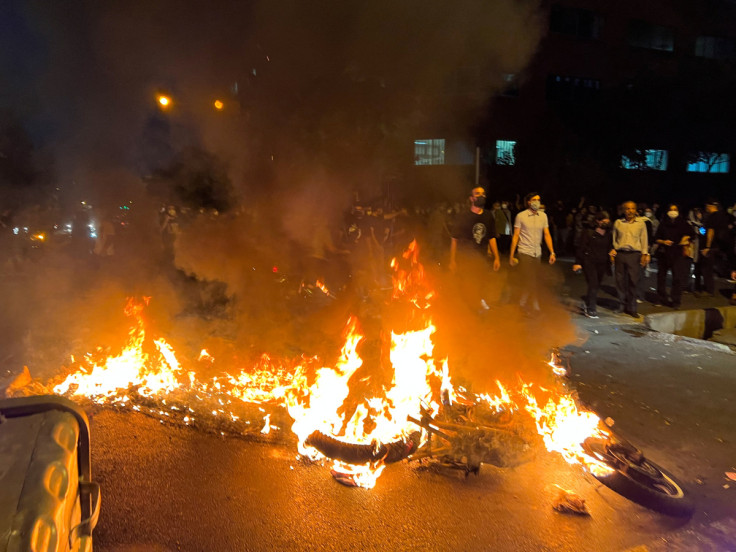Israeli Intelligence Chiefs See Tehran Surviving Protests, For Now

Iran's clerical rulers are likely to survive protests sweeping the country and could stay in power for years, the chief analyst for Israeli military intelligence said on Monday, prompting his commander to predict the enemy regime would eventually fall.
Locked in a Cold War-style conflict with Iran, Israel has closely monitored the unusually protracted and violent unrest and offered some statements of support for the protesters.
But Israeli officials, their focus on Iranian nuclear projects and regional guerrilla allies, have been circumspect about any prospects for Tehran being topped by a popular uprising.
"The repressive Iranian regime will, it seems, manage to survive these protests," Brigadier-General Amit Saar, who as head of research for Israel's military intelligence is responsible for national strategic forecasts, said in a speech.
"It has constructed very, very strong tools for dealing with such protests," he told the first public conference by the Gazit Institute, a think-tank that operates under his corps.
"But I think that even if these protests wane, the reasons (for them) will remain, and thus the Iranian regime has a problem for years to come."
Addressing the forum later, military intelligence commander Major-General Aharon Haliva recapped Saar's remarks but added: "Seen long-term, it would appear this regime will not survive."
"I'm not in a position to give a date. We are not prophets," he cautioned. "I recommend that we all be far more modest, with far more caveats, when it comes to the conduct of societies."
The upheaval, sparked by the death of Iranian Kurdish woman Mahsa Amini on Sept. 16 in police custody, poses one of the strongest challenges to the Islamic Republic since the 1979 revolution. Tehran brands the protests as a Western-backed plot.
(Writing by Dan WilliamsEditing by Steven Scheer and Bernadette Baum)
© Copyright Thomson Reuters 2025. All rights reserved.





















